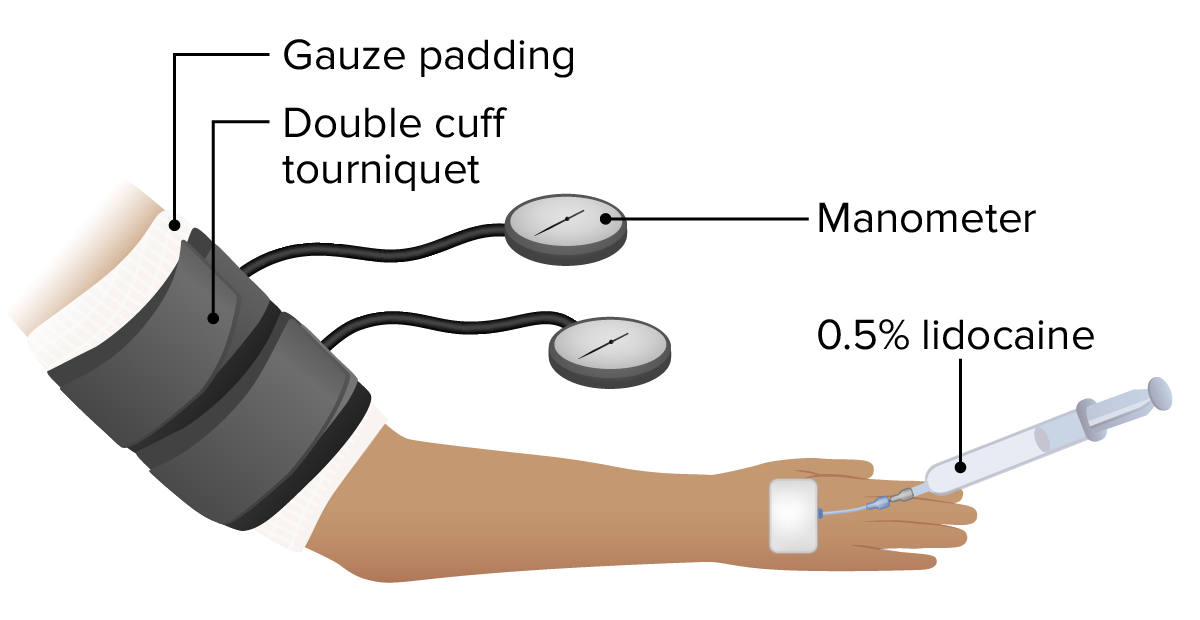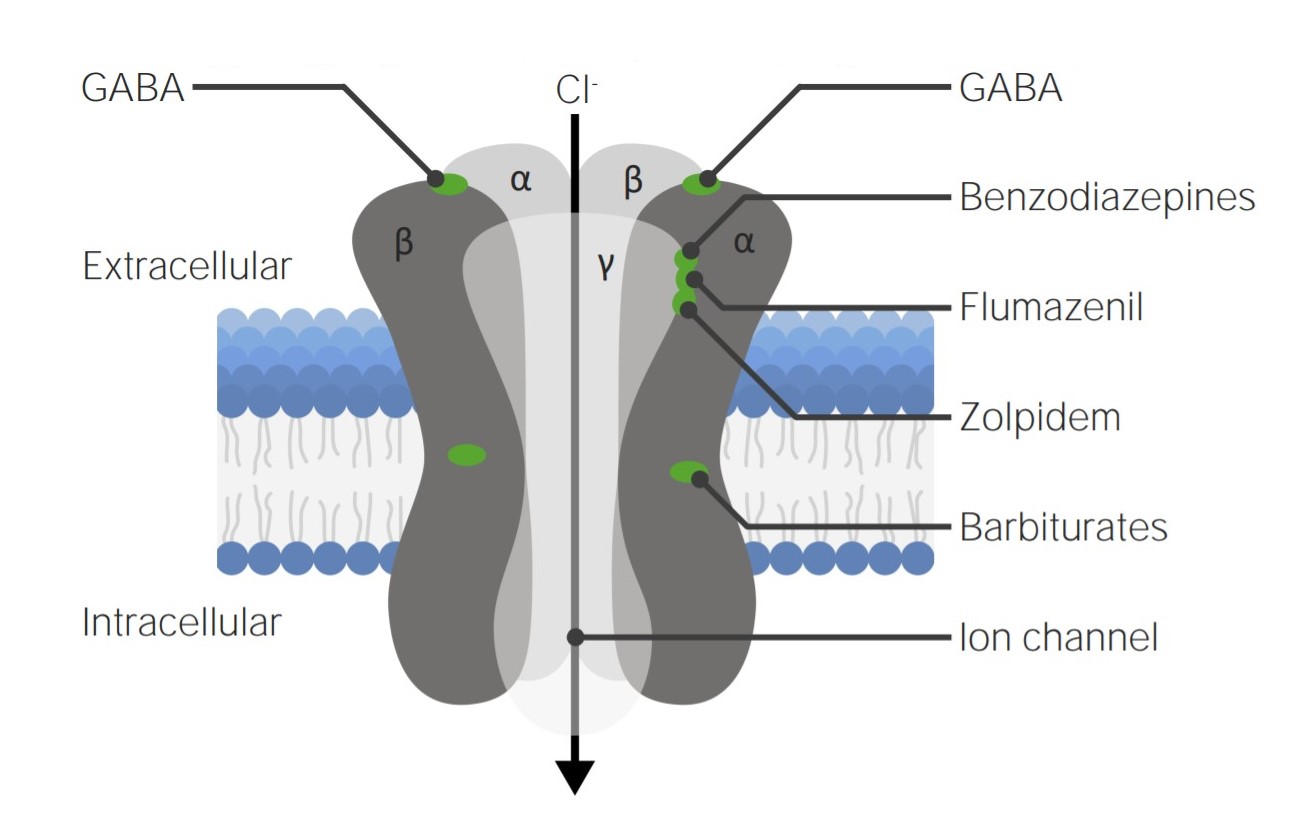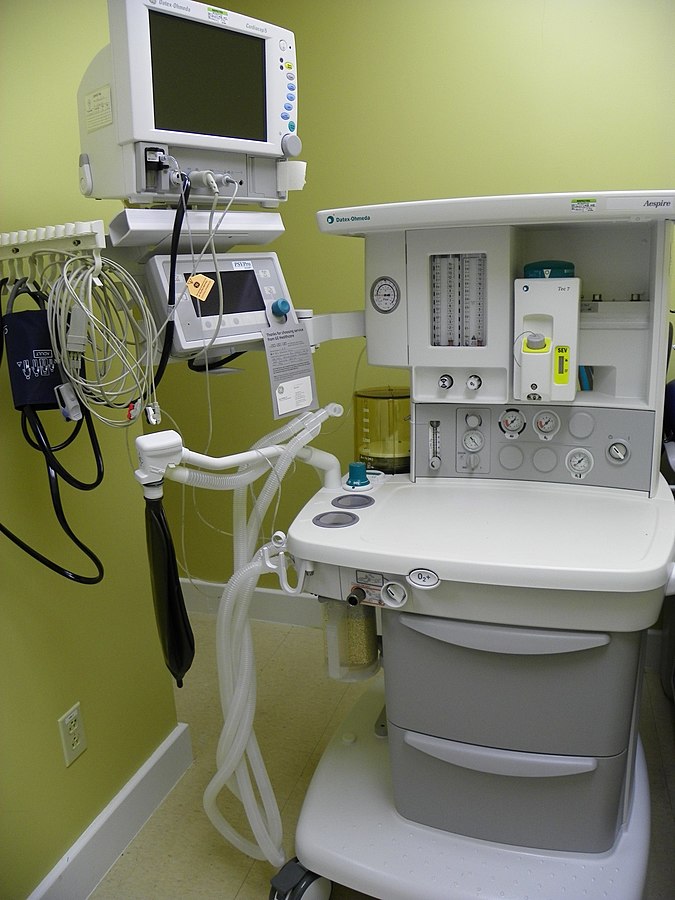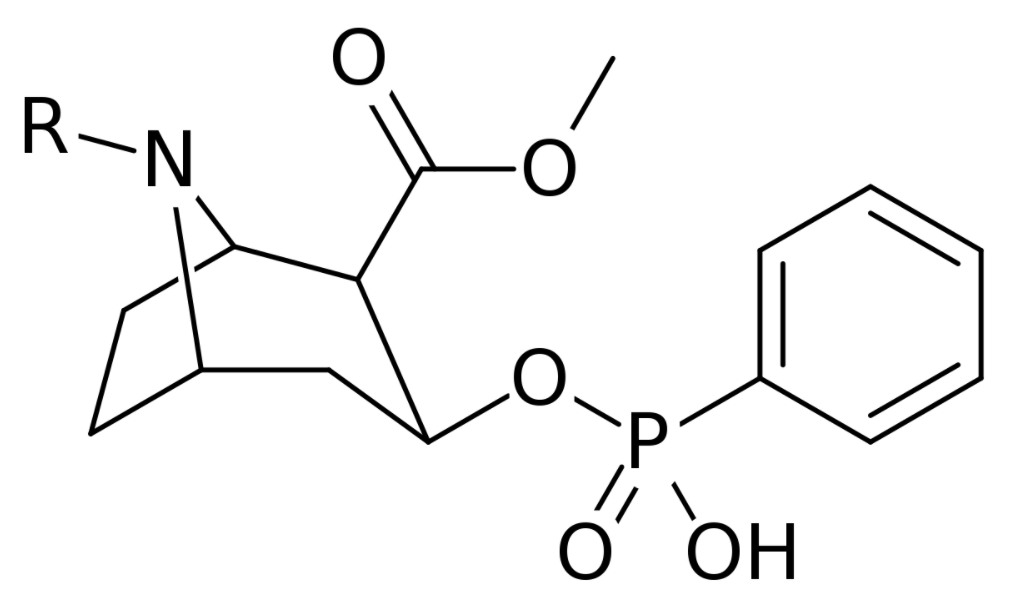Playlist
Show Playlist
Hide Playlist
Case Study – Anesthetic Drugs
-
Slides Case Study Anesthetic Drugs.pdf
-
Reference List Pharmacology.pdf
-
Download Lecture Overview
00:01 Let's do a question. Heating up the OR. A 42-year-old woman is undergoing a D&C for fibroids. 00:08 She is under general anesthesia with propofol and halothene. Her heart rate climbs to 145 beats per minute, and her temperature at 8:04 a.m. was 37,5, at 8:08 was 39,6, and at 8:09 was 40,1 degrees. 00:28 Now, if you're still using Fahrenheit, that's 104 degrees, and you can write that down on your stone tablet. 00:34 The gynecologist tells you that the patient is starting to twitch. What is the appropriate action for this patient? Do you A, request an urgent blood test and assess this patient for rhabdomyolysis? B, do you request an urgent urine test to assess for myoglobulinuria? C, do you administer more propofol urgently because she is under-sedated? Or D, do you administer dantrolene urgently? Okay. If you answer D, you can become a doctor. 01:09 If you answered anything else, you should hang up your stethescope now and become a truck driver because really, you need to recognize malignant hyperthermia. This is critical for your training. 01:19 This is going to be critical for your exams. Malignant hyperthermia, dantrolene, within 1 minute or the patient dies. 01:25 So, remember this stuff. It's going to be on your exams, you may even have more than one question on your exam. 01:31 Susceptible individuals may experience malignant hyperthermia when exposed to any potent volatile inhalation anesthetic agent or succinylcholine. The anesthetic agent most strongly associated with malignant hyperthermia is halothane. 01:46 So remember, if an anesthetized patient receiving a volatile anesthetic has hypercarbia, tachycardia, or high temperature, think of malignant hyperthermia first, and look for dantrolene in the answer.
About the Lecture
The lecture Case Study – Anesthetic Drugs by Pravin Shukle, MD is from the course CNS - Pharmacology.
Included Quiz Questions
Which statement is correct regarding malignant hyperthermia?
- Dantrolene should be administered as soon as malignant hyperthermia is suspected.
- Propofol is an anesthetic drug that is commonly associated with malignant hyperthermia.
- Myoglobinuria is one of the earliest clinical markers of malignant hyperthermia.
- Malignant hyperthermia has a subacute onset and usually starts within 2 weeks after the surgery.
- Reverse the effect of dantrolene as soon as possible.
Customer reviews
5,0 of 5 stars
| 5 Stars |
|
2 |
| 4 Stars |
|
0 |
| 3 Stars |
|
0 |
| 2 Stars |
|
0 |
| 1 Star |
|
0 |
In Portugal, almost all exams are clinical cases, and it's awesome one we can find problems like this lecture and detail explanation on the answers. Great lecture
Very good lecture, a great teacher and a good sense of humor !







